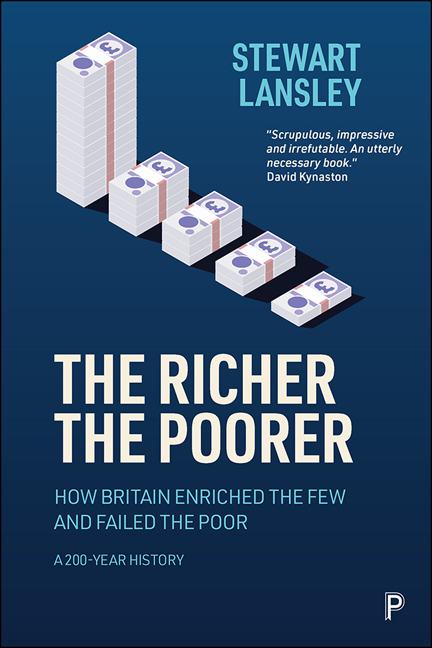Book contents
- Frontmatter
- Miscellaneous Frontmatter
- Dedication
- Epigraph
- Contents
- List of figures
- Preface and acknowledgements
- Introduction: Knighthoods for the rich, penalties for the poor
- PART I 1800–1939
- PART II 1940–59
- PART III 1960–79
- PART IV 1980–96
- PART V 1997–2010
- PART VI 2011–20
- Afterword: COVID-19 and ‘the polo season’
- Notes
- Index
- Frontmatter
- Miscellaneous Frontmatter
- Dedication
- Epigraph
- Contents
- List of figures
- Preface and acknowledgements
- Introduction: Knighthoods for the rich, penalties for the poor
- PART I 1800–1939
- PART II 1940–59
- PART III 1960–79
- PART IV 1980–96
- PART V 1997–2010
- PART VI 2011–20
- Afterword: COVID-19 and ‘the polo season’
- Notes
- Index
Summary
The deal that most came to symbolise the extractive processes at work was the dramatic buy-out of RJR Nabisco, the giant US tobacco and food conglomerate. The $25 billion 1988 bidding war, a nail-biting and highstakes game of corporate poker, involved a river of money so great that it greatly distorted the American money supply figures. The fees enjoyed by the two top executives –$53 million and $46 million respectively –were stratospheric even by Wall Street standards.
In the UK, the takeover deals of the time were often hatched in private clubs and restaurants. The Savoy Grill in the Strand, a favoured haunt of the rich and the famous, became known in business circles as the ‘Deal Makers’ Arms’. While some deals improved overall corporate performance, they too often extracted, and sometimes destroyed, rather than built value. A lucrative game of corporate pass the parcel became the source of personal enrichment for a generation of financiers whose route to wealth bypassed the entrepreneurialism that is the backbone of a wealth-creating economy. Companies were cracked open like piggy banks to extract the spoils. As the author of Barbarians at the Gate –the story of RJR Nabisco –put it, ‘This was wealth created by tearing apart companies rather than building them up, by firing or downsizing companies rather than by hiring them.’ ‘There is no historical precedent for such regressive redistribution within one generation without either legal title or economic disaster’, concluded one study.
Tomorrow's money today
The actions of the new tycoons and their accomplices brought another wave of upheaval to staff, small businesses and communities. The journalist Paul Johnson, former editor of the New Statesman, on the left in his early career and never a man to mince his words, described the rampaging dealmakers of the time as ‘typical of the rottenness that is poisoning British society’. What drove the deals was not a crusade to re-energise industry. The future viability of the companies targeted, the welfare of their employees and the ‘national’ or ‘social interest’ had no place in the calculations. Lord White used to boast that he had never set foot on the shop floor of any of the companies that he bought. The name of the game, as James Hanson acknowledged, was to get hold of ‘tomorrow's money today’.
- Type
- Chapter
- Information
- The Richer, the PoorerHow Britain Enriched the Few and Failed the Poor: A 200-Year History, pp. 152 - 160Publisher: Bristol University PressPrint publication year: 2021

